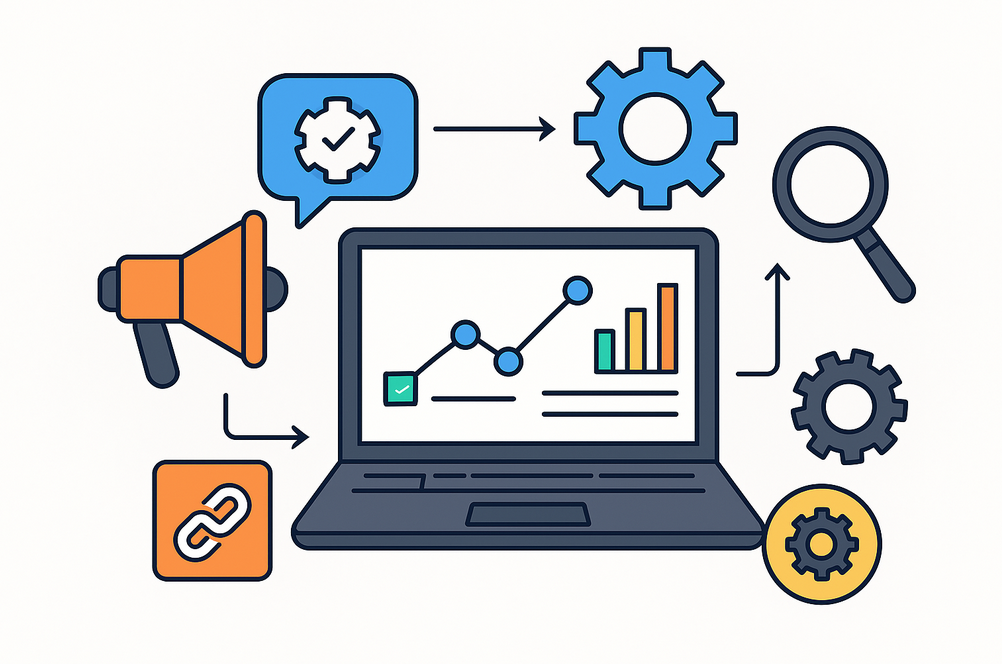If you’re immersed in the world of marketing and promotion, you’ve probably heard many times in recent years that email marketing is dying or is already dead. Based on the data, not a chance. A recent study done by Supply Gem shows that email marketing remains on the rise.
- There Are Over 4 Billion Email Users Globally
- Email use continues to climb around the globe. In 2019, there were approximately 3.9 billion email users worldwide. This number is expected to grow to 4.3 billion in 2023 [1].
- Almost 300 Billion Emails Are Sent Every Day
- An astounding amount of emails are sent every day. In 2019, approximately 293 billion emails were sent each day. This number is expected to grow to a staggeringly high 347 billion emails every day [2].
- The Average American Worker Receives 126 Emails per Day
- Americans are at the top of the email usage pyramid. On any given day, the average American worker receives 126 emails per day. That is basically 1 email every 11 minutes [3].
- 82% of Workers Check Their Email Outside of Work Hours [3].
- The Average Worker Spends 2.5 Hours per Day Checking Email [4].
- The Average American Has 1.75 Email Accounts [4].
- 91% of Those Age 15-24 Use Email on a Regular Basis [5].
- 86% of Those 65+ Use Email on a Regular Basis [5].
- Women Spend More Time Checking Email
- The average woman spends about 7 minutes more on average checking email each day compared to men [6].
- 50% of People Check Their Email as the First Thing Online
- Conversely, only 14.8% check social media first [7].
Clearly, email marketing is a powerful tool when used correctly. However, understanding exactly what you will get in return from your efforts can be difficult. Many influencers and companies offer businesses the opportunity to pay to advertise to their email subscribers. This has become an increasingly popular strategy used in influencer marketing but purchasing these email blasts can be costly.
If you are purchasing an email blast to a subscriber list, be sure to ask for their average performance rates (aka KPIs). You can then use these rates and plug them into the calculator below to better understand your potential return and whether or not it is a sound investment.
Email Marketing Performance Benchmarks
Introduction
We analyzed over 30 billion emails sent globally between January and December 2019. These campaigns were sent by Campaign Monitor customers across 171 countries to subscribers all around the world.
Key takeaways
01 | Government organizations continue to dominate open rates globally.
Though Government unseated Nonprofits as the top industry for highest open rates, this year’s top three industries in that category—Government, Nonprofit, and Education respectively—were also top performers in 2019’s report. However, they saw even better numbers in this year’s study.
Government open rates improved by a whopping 10.71% (from 19.79% last year to 30.5% this year). Nonprofit open rates improved by 4.81% (from 20.39% last year to 25.2% this year). And Education open rates improved by 4.5% (from 18.9% last year to 23.4% this year).
02 | Last year’s industry with the lowest open rates isn’t even in this year’s bottom three.
Consumer Packaged Goods only saw 14.53% open rates last year and remained consistent this year at 14.5% open rates. However, this year, that percentage was high enough to make it out of the bottom three.
The Automotive and Aerospace industry saw the lowest open rates of only 12.6%, dropping from around 17% last year. Meanwhile, Food and Beverage (13.0% this year vs 15.48% last year) as well as Retail (13.9% vs 14.98% last year) both experienced lower open rates than the previous year to remain in the bottom three.
03 | The click-through rates for government emails experienced a sharp jump this year.
The top three industries by click-through rate remained the same as in 2019, though the ranking differed. Government jumped two places to become the top industry for click-through rate, while Real Estate, Design and Construction Activities, and Agriculture, Forestry, Fishing and Hunting also remained within the top three.
Government click-through rates improved by 1.06% (from 3.04% last year to 4.1% this year). Real Estate, Design and Construction Activities click-through rates improved by 1.02% (from 18.88% last year to 19.9% this year). And Agriculture, Forestry, Fishing and Hunting click-through rates remained relatively consistent, decreasing by 0.16% (from 3.66% last year to 3.5% this year).
04 | Global Retail open rates dropped in 2019, though engagement remained high.
While Retail emails experienced lower open rates than the previous year (13.9% this year, down from 14.98% last year), the click-to-open rate of 15.2% remained higher than the 14.3% average. This means the people who open Retail emails are likely to visit their site.
Retail has some of the highest competition of all industries, which can lead to low open rates. Despite seeing lower open and click-through rates, 38% of US consumers report having been driven to action due to email.
05 | Tuesdays see the highest open rates but also the highest unsubscribe rates.
We get a lot of questions about the best days to send emails. But this finding proves that while sending emails on Tuesday might help you see a higher open rate, you could just as likely see more unsubscribes.
While it’s unfortunate there’s no simple hack to seeing more opens and click-throughs for your email marketing strategy, this means that marketers can stop chasing an elusive “best day” and instead focus on the real answer to seeing better metrics: following email marketing best practices and A/B testing to discover the day your audience is most engaged.
06 | The highest-performing industries see high engagement in all areas.
Government, alongside Real Estate, Design and Construction Activities, and Agriculture, Forestry, Fishing and Hunting have some of the highest performing emails across the board. Their subscribers open and click on a high percentage of the emails they send.
07 | The average global email benchmarks remained consistent from last year.
While most average benchmarks remained consistent from 2018’s performance, we saw an improvement to bounce rates and unsubscribes. Bounce rates improved by .36% and our emails saw .08% fewer unsubscribes. This means marketers are getting better at sending emails their subscribers love and look forward to.
Not only are marketers keeping their subscriber lists up to date, they’re also keeping subscribers engaged with high-quality content that meets subscribers’ needs.
08 | Email marketing continues to engage today’s consumers. And we predict even stronger numbers for next year.
Last year’s best numbers saw big improvements for 2019. That just proves that regardless of how well your email marketing strategy currently performs, there’s always room to improve. The best and most useful emails will continue to see high open and click-through rates as you establish your brand as a must-read resource for your subscribers.
Check out last year’s report to see how your industry has changed.
Infographic of this year’s key findings
This infographic highlights a few of our favorite findings from this report.



